In addition to introducing basic accessibility knowledge and various initiatives for accessible experience of arts and culture, as lecturers and guests this program will feature practitioners of accessibility at movie theaters, theaters, concert halls, museums and art spaces, as well as diverse audiences of the arts. Our lecturers and guests will explain and introduce specific innovations and practical methods.
We learn to respect the background and characteristics of all followers of the arts and learn how to provide support and accessibility that meet the needs of diverse people.
Ideal for:
Between May and October 2024 (Sign language interpreting and speech-to-text support available)
[Training video]
Available from Friday, May 31, 2024
Accessibility introduction (1) Basic knowledge
Accessibility introduction (2) Sight impaired people
Accessibility introduction (3) Hearing impaired people
*Taking the training in this video is a requirement when applying for the Grant for Accessibility. The application is available from May 31, 2024. We include the link below for more details so please make use of this.
Details: Grant for Accessibility special website https://act-kansho.support/
[Online lectures (realtime stream)]
Each session: 18:30 – 20:00 Lecture and guest talk/Q&A session (including break)
Thursday, June 27, 2024 Basic knowledge: Understanding accessibility
Thursday, July 25, 2024 Accessibility: Movie theaters/movie screenings
Thursday, August 22, 2024 Accessibility: Performing arts
Thursday, September 19, 2024 Accessibility: Museums/art spaces
Thursday, October 3, 2024 Talk event: The potential for accessibility in arts and culture
Accessibility introduction (1) Basic knowledge
We will introduce the purpose/significance of promoting accessibility, feedback from the frontlines “Important things for the promotion of accessibility,” and examples of implemented accessibility measures.
Accessibility introduction (2) Sight impaired people
We present a guide to accessibility measures for people with visual impairments (from bookings to accessing/visiting venues, enjoying performances and post-performance aspects), and introduce support tools, etc.
Accessibility introduction (3) Hearing impaired people
We present a guide to accessibility measures for people with hearing impairments (from bookings to accessing and visiting venues, enjoying performances and post-performance aspects), and introduce support tools, signing, etc.
Accessibility: Movie theaters/movie screenings
Lecturer: Chihoko Hiratsuka, Tomoya Ishida
Facilitator: Sayuri Yamada
This is a lecture focusing on accessibility for movie theaters and movie screenings, in which we learn about the moviegoing experience for a variety of people and the support enabling them to enjoy the big screen. We think about the reasonable accommodations and barrier free measures required in movie theaters, as well as information accessibility support and aspects of film/video works themselves that could be modified and which movie producers could quickly and easily address. We also share initiatives from Japan’s first “universal” movie theater “CINEMA Chupki TABATA,” and the moviegoing perspective of Tomoya Ishida, the director of the movie “ Transform!” who is himself disabled.
Accessibility: Performing arts
Lecturer: Yuichi Kinoshita, Yukiko Yamazaki, Kazuyo Tada
Facilitator: Sayuri Yamada
We deepen our understanding about ways the performing arts can be enjoyed by diverse audiences and the challenges they face. Together we think about the process of getting to grips with accessibility from the first step onwards, with reference to the introduction of innovations designed to deliver information, such as accessibility and support measures that can be deployed at theaters and concert halls, as well as ways to deliver information such as public relations and ticketing, etc. We also refer to accessibility initiatives put into practice by Kinoshita-Kabuki.
Accessibility: Museums/art spaces
Lecturers: Megumi Harashima, Kenji Shiratori
Lecturer/facilitator: Sayuri Yamada
The idea of “inclusivity” is currently gaining traction at museums and art spaces. How do visitors with different backgrounds experience exhibitions and the exhibition environment, and what sort of difficulties do they encounter? On the other hand, what knowledge is put to use by venue operators towards accommodating a diverse range of people, on the basis of limited resources? We learn about some pointers that could be applied tomorrow to various exhibition environments from the initiatives at the Chihiro Art Museum in Tokyo, as well as from the activities and perspective of Kenji Shiratori, a blind art aficionado.
Talk event: The potential for accessibility in arts and culture
Guests: Asako Hirokawa, Kensuke Ishii, Takayuki Shiose, Naoko Kaji
Facilitator: Sayuri Yamada
In the lectures so far, we have thought about accessibility and support mechanisms for art appreciation with a focus on movie theaters, performing arts, museums and art spaces. For this talk event a variety of guests made up of practitioners and audiences of art provide the topics and engage in discussion. Subjects include the essence of accessibility in arts and culture, the practices and innovations enabling everyone to access and experience art on an equal footing, and the prospects going forward. In the second half, we would like to take questions from talk participants, as well as share the perspectives and ideas that allow us to get straight down to addressing accessibility and the experience of art.
【Facilitator/Lecturer〔Basic knowledge〕〔Museums/art spaces〕】

Sayuri Yamada (Representative Director, NPO Collable)
【Lecturer】
〔Basic knowledge〕
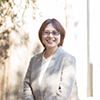 Photography: Munemasa Takahashi
Photography: Munemasa Takahashi
Chikako Suzuki (Researcher, Independent Administrative Institution National Museum of Art, National Center for Art Research)
〔Movie theaters/movie screenings〕

Chihoko Hiratsuka (Representative, universal theater CINEMA Chupki TABATA)
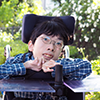
Tomoya Ishida (Film director, electric wheelchair user with muscular dystrophy)
〔Performing arts〕
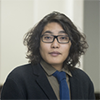 Photography: Naoko Azuma
Photography: Naoko Azuma
Yuichi Kinoshita (Leader of Kinoshita-Kabuki)
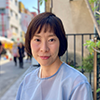
Kazuyo Tada (Tokyo Metropolitan Theatre)

Yukiko Yamazaki (accessibility advisor/deaf fan of the stage)
〔Museums/art spaces〕
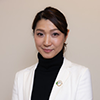 Photography: Miya Igarashi
Photography: Miya Igarashi
Megumi Harashima (Senior Associate/Chief Curator, Chihiro Iwasaki Memorial Foundation, Chihiro Art Museum Tokyo, Chihiro Art Museum Azumino)
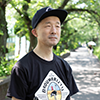 Photography: Ryuichiro Suzuki
Photography: Ryuichiro Suzuki
Kenji Shiratori (blind art fan, photographer)
〔Talk event〕

Asako Hirokawa (Director, NPO Theatre Accessibility network/User Researcher/specially appointed researcher, Tojisha-Kenkyu, Research Center for Advanced Science and Technology, University of Tokyo)
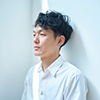
Kensuke Ishii (blind communicator)
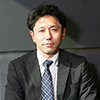
Takayuki Shiose (Associate Professor, the Kyoto University Museum)
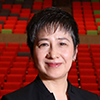
Naoko Kaji (Director of Planning and Production Division, Tokyo Bunka Kaikan)
Please make a reservation for the lecture via Peatix (Peatix account registration required in advance)
Applicants will be emailed a YouTube Live stream URL.
*If you add yourself as a friend on the ARTNOTO LINE official account, we will send you regular lecture/program information.
【Where to apply】
・Thursday, June 27, 2024 Basic knowledge: Understanding accessibility
・Thursday, July 25, 2024 Accessibility: Movie theaters/movie screenings
・Thursday, August 22, 2024 Accessibility: Performing arts
・Thursday, September 19, 2024 Accessibility: Museums/art spaces
・Thursday, October 3, 2024 Talk event: The potential for accessibility in arts and culture
【Application deadline】
Until 20:00 on each lecture date
【Program fees】
free
【Points to note about participating】
*This is an online course using Zoom Webinars. Participants themselves will not appear on the screen. There will be no discussions between participants, or workshops.
*All lectures are standalone. Please apply for your desired session(s).
*Accessibility: Japanese sign language interpreting, UD Talk speech-to-text support.
*Archived video will be made available on ARTNOTO’s official YouTube channel at a later date.
*Personal information submitted at the time of application will be used by Arts Council Tokyo and the management office solely for the purpose of operating and providing information about this program, in accordance with the privacy policy of the Tokyo Metropolitan Foundation for History and Culture.
*The program is subject to change.
【Program details and accessibility】

NPO Collable
TEL: 03-6240-0490(Weekday 10:00~18:00)
It may be difficult for us to respond immediately. In this case, we will contact you by the next business day, so we ask you to set your phone to show our phone number (disable Block setting).
E-mail: info@collable.org
URL: http://collable.org/
【Application details】
Consultation and Support Division, Initiatives and Grants Department
Arts Council Tokyo, Tokyo Metropolitan Foundation for History and Culture
TEL:03-6256-9237 (Weekday 10:00-18:00)
E-mail:learning@artscouncil-tokyo.jp